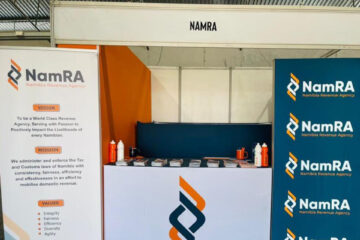Hertta-Maria Amutenja
The cabinet has approved the application for Namibia to become a member of the Nuclear Suppliers Group (NSG).
The decision was made at the 16th cabinet meeting held last week.
Minister of information and communication technology Emma Theofelus said the cabinet has directed the ministry of international relations and trade to coordinate technical updates to the application dossier.
“To act as a focal point and to establish an Inter-Ministerial Committee tasked with implementing the NSG Guidelines,” said Theofelus.
She added that the Cabinet further approved a ministerial-level delegation to lobby the Director-General of the International Atomic Energy Agency (IAEA) and the chairperson of the NSG during the General Conference in Vienna, Austria, to consider Namibia’s application.
“Cabinet authorised the ministry of industries, mines and energy to establish a National Independent Regulator and mechanisms of Safeguards-Safety and Security,” she said.
Cabinet also approved the strengthening and relaunch of the RightStart Early Childhood Development programme as Namibia’s official communication and behaviour change platform. The programme will be relaunched on 7 August 2025.
The ministries of Gender Equality and Child Welfare; Education, Innovation, Youth, Sports, Arts and Culture; and Health and Social Services were directed to integrate RightStart into their strategic and annual plans, with a budget provision of N$1.5 million each per annum for five years.
According to Theofelus, all offices, ministries, agencies, and regional councils are required to nominate RightStart focal persons. High-level advocacy of the programme through cabinet, parliament, regional and local authorities, the private sector, civil society, and traditional leaders was supported.
In fisheries, the cabinet approved measures for the Ministry of Agriculture, Fisheries, Water and Land Reform to reduce bycatch levels.
These include a 2% bycatch retention threshold, increased fees from 15% to 50%, licence revocation or suspension for habitual offenders, quota deductions for repeated violations, and an annual public listing of bycatch violators.




